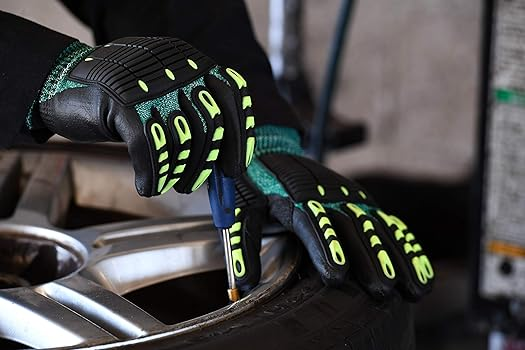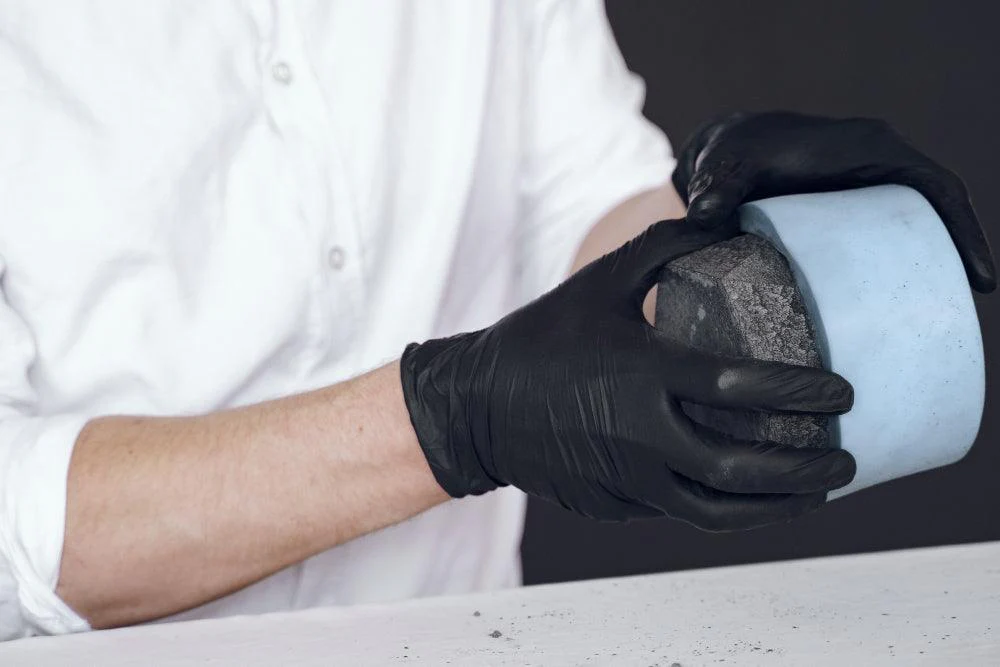No matter the environment, hand protection is indispensable, especially in harsh environments like auto repair shops and mechanical workshops. Mechanic gloves play a crucial role in these situations. They are specifically designed to provide hand protection for mechanics, preventing physical injuries and protecting hands from extreme environmental hazards, all while enabling precise operations and flexibility. Below, we will give you a comprehensive introduction to mechanic gloves, ensuring you find the most suitable gloves based on your specific needs.
What are the benefits of mechanic gloves?
Mechanic gloves are designed to withstand prolonged friction and stretching, focusing on flexibility and breathability. They provide excellent grip without compromising flexibility, enhancing the ability to hold tools. Additionally, mechanic gloves help prevent oil stains, keeping hands relatively clean, reducing the need for frequent handwashing, saving time, and improving work efficiency.
These gloves also help reduce the damage caused by prolonged work on hands, ensuring a perfect fit and maintaining comfort and breathability, which reduces hand fatigue and the likelihood of skin damage.
What types of mechanic gloves are there?
Since a mechanic’s work involves various tasks, different types of mechanic gloves are designed to meet specific needs. Generally speaking, mechanic gloves can be classified into the following categories based on their functions and designs.
General-purpose type:
These gloves are typically made from materials like nylon, polyester, or synthetic leather, making them suitable for light daily activities and regular repairs. They are resistant to oil and moisture, offering excellent abrasion resistance and basic impact protection. These gloves improve grip in damp and oily environments, protecting hands from injuries in typical working conditions.

Cut-resistant type:
These gloves are made with high-performance, high-strength cut-resistant fibers like Kevlar, steel wire, aramid, and HPPE. They are ideal for handling sharp objects like glass, steel, and metal, or for using cutting machines and heavy equipment like engines. These gloves effectively reduce the risk of cuts, preventing accidents and unnecessary injuries.

Impact and vibration-resistant type:
These gloves feature additional TPR or rubber armor on the back of the gloves or finger joints, or an extra protective pad inside the gloves to absorb vibrations. They can withstand significant impacts and reduce the damage caused by vibrations, protecting hands from unnecessary injuries when working with heavy machinery such as gearboxes or engines.

High-temperature resistant type:
These gloves are made with fire-resistant materials or feature heat-insulating layers on the outer surface to prevent burns from sparks and high temperatures. They are suitable for welding, cutting operations, forging workshops, or working with high-temperature components. However, the flexibility of these gloves may be slightly reduced in comparison.

Chemical-resistant type:
These gloves are typically made from materials like neoprene or PVC, which provide excellent resistance against acids, alkalis, solvents, oils, and other chemicals. They protect the skin from chemical corrosion and are ideal for automotive repairs or industrial environments rich in oil or chemicals.

Disposable type:
Some mechanics who perform less demanding tasks use disposable latex or nitrile gloves to protect their hands. These gloves prevent oil from soiling hands and help avoid the formation of calluses. Since they are disposable, there’s no need to wash them—simply discard them after use. However, the downside is that these gloves offer no protection against sharp objects, and their grip is limited.

Conclusion:
There is no “one-size-fits-all glove.” To achieve real protection and safety, it’s essential to choose the most suitable gloves based on the specific environment or potential hazards in your work or glove usage. Typically, professional mechanics will keep 2-3 types of gloves to handle different tasks. Understanding the core risks helps match the right mechanic gloves to protect your hands.
If you’re interested in mechanic gloves or want to purchase them, please contact us or visit our website to check out our range of mechanic gloves.
How to Measure Glove Sizes – Source: AIBON
Latex gloves– Source: AIBON
Safety gloves– Source: AIBON
Working gloves– Source: AIBON

